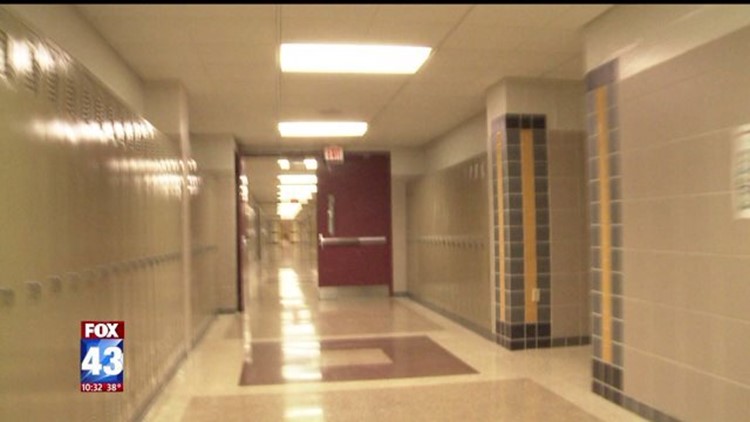In light of shootings in schools, malls and other places with a large concentration of people, a growing number of schools are changing the way they train faculty, staff and students to respond to an active shooter situation.
Since two students went on a shooting rampage at Columbine High School in 1999, more than 500 schools nationwide have experienced campus shootings.
It’s a horrifying and unlikely scenario, but one many schools are training staff and students to deal with proactively.
“Unfortunately, it has become a fact of life that we need to deal with, and the idea is, how we’ve been dealing with it, while effective, can be improved,” said Stephanie Lininger, assistant principal at Solanco High School.
That’s where ALICE comes in, a program implemented nationally in schools, malls and workplaces on how to respond to a situation involving a violent intruder. ALICE is an acronym for Alert, Lockdown, Inform, Counter, Evacuate.
“It intuitively lines up with anybody’s natural instinct that when they’re faced with danger, they can run, they can hide or they can fight,” said Det. John Baker, safety and security manager for Lancaster-Lebanon IU-13.
Baker conducts ALICE training to schools across Pennsylvania. He said studies of those 500 school shootings show that traditional lockdown methods lead to greater loss of life.
He points to the 2007 Virginia Tech massacre, where a single gunman killed 32 people. Most of the deaths happened inside a campus building.
“There was 30 fatalities in that building,” Baker said. “The rooms that did nothing other than traditional lockdown, where the kids shut the door, turned out the lights and sat on the floor, that resulted in 28 of the 30 fatalities. The rooms where the staff and the students said, you know what, ‘we’ve got to do something other than just sit here,’ there was only two fatalities.”
Depending on the situation, ALICE provides people with different options. In enhanced lockdown mode, students and faculty learn to use whatever is available to them, such as backpacks, belts, desks and chairs to reinforce locks and barricade doors.
“That’s buying that classroom time. Compared to being able to just step around the corner and start shooting,” Baker said.
Perhaps the most controversial component: countermeasures. They include actions as simple as yelling, throwing whatever you can get your hands on at the shooter to distract him, and as a last resort, what’s known as the “Swarm technique.”
“If you’ve got 200 pounds of bad guy, and you’ve got 2000 pounds of good guy, what’s going to happen if enough good guys jump on bad guy? He can only stand up for so long,” Baker said.
The ultimate goal is to be able to evacuate safely. Statistics show that active shooter situations typically last between six to ten minutes.
For rural school districts like Solanco, it can take even longer for help to arrive.
“Being located where we are, obviously the state police and surrounding law enforcement will come as quickly as possible, but there is going to be a distance of time there, that we are in command of the situation until they get here,” Lininger said.
Lancaster Catholic Vice Principal Adrienne Howe has also gone through the ALICE training and presented it to faculty, staff, students and parents. She said response to the program has been overwhelmingly positive, but a few parents expressed concerns over the ‘fight’ aspect.
“They hear the word, ‘fight back,’ and they think that you’re telling their child to go find the bad guy or whatnot and that’s not the case,” Howe said. “I think being prepared is better than, well, what would we do, if? It’s too late to think about it then.”
Baker said schools are able to pick and choose the aspects of ALICE that fit best with each classroom’s skill and comfort levels, and ultimately, leave students and staff members with techniques they can use outside of school grounds when confronted with dangerous situations.
“Anywhere you go, these concepts, in your own home, these concepts work,” he said. “I truly believe it’s a life skill and it saves lives.”
At least one administrators from every school district in Lancaster and Lebanon Counties is trained on the ALICE technique. Hundreds of schools across Pennsylvania have adopted it as well.



